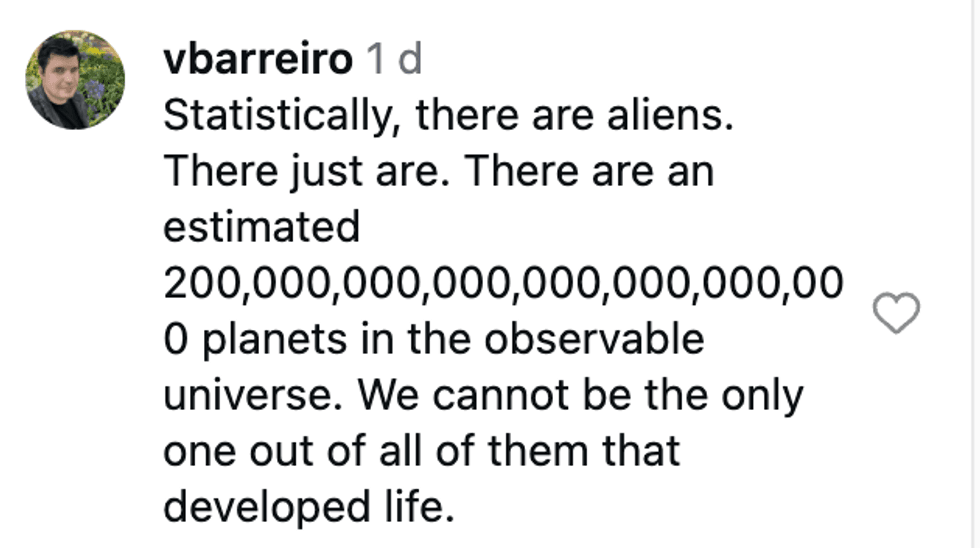Though artificial intelligence has been around and mingling with our daily lives for years, it's been particularly prevalent in the last few years with the introduction of ChatGPT and other similar online tools.
Publications have had to become increasingly mindful about where they source their information, as articles written by AI are often flawed, embellished, or a conglomeration of uncited sources.
Major publications have also gained the public's trust over time, and presenting information that isn't actually written by the publication's staff would hurt their community's trust, as well.
So there's no question that readers of the Chicago Sun-Times were disheartened to learn that the publication had used AI tools to write at least one of their articles.
Twitter (X) user and fiction author Patricia Correll pointed out that the publication used AI to write a "Summer reading list for 2025," saying that the article did not have a byline—and there were at least eight titles that did not exist.
The Chicago Sun-Times published an upcoming summer books list that is obviously AI. The clues are that there is no byline and at least 8 of these titles do not exist. pic.twitter.com/SfhZpG456C
— Patricia Correll (@Author_PCorrell) May 20, 2025
Presumably, the writer behind the AI-generated article prompted ChatGPT to generate a list of suggested books to read in summer 2025.
The first problem, beyond the fact that AI was used, is that the prompt was ineffective.
Usually, when major publications like Book Riot or Publishers Weekly or the LA Review of Books put together a list of books to read for the summer, they'll choose popular titles from the same year.
Using this year as an example, a summer reading list would contain popular titles published between January and June of 2025, perhaps with a particularly hot title from November and December 2024 thrown in.
This list of fifteen titles, however, contains five books that were published between 1954 and 2012, nowhere near 2025.
For the curious, the real titles are the last five listed: Bonjour Tristesse by Françoise Sagan (published in 1954), Beautiful Ruins by Jess Walter (published in 2012), Dandelion Wine by Ray Bradbury (published in 1957), Call Me By Your Name by André Aciman (published in 2007), and Atonement by Ian McEwan (published in 2001).
This brings us to the second problem, which is that fake books were generated as reading options.
Out of 15 suggested books to read for the summer, 10 of them were fake. The authors mentioned are all real writers, like The Seven Husbands of Evelyn Hugo author Taylor Jenkins Reid and Where the Crawdads Sing author Delia Owens. But the book titles associated with them are not real, and the synopses for them are similarly strange and laughable.
Rebecca Makkai, one of the authors who was featured with a fake book title, called the Chicago Sun-Times out on Bluesky.
"WHAT. THE ACTUAL. F**K."
"'Chicago Sun-Times seems to have used AI to write its summer reading list of BOOKS THAT DO NOT EXIST."
"I did not write a book called 'Boiling Point.' [Rumaan Alam] and Min Jin Lee and Percival Everett, etc. etc., did not write these books."
"WTAF."
Makkai then quipped in the comment section, referring to her previous publication of The Great Believers:
"Also, everyone knows that if I ever write a follow-up to 'The Great Believers,' it will be called '2 Great 2 Believe'!"
"Also, I love that the last four are just legit books that everyone's already known about forever. Like the AI just got tired of making stuff up and was like, 'How about 'Atonement'?'"
Also everyone knows that if I ever write a followup to The Great Believers it will be called 2 Great 2 Believe!
— Rebecca Makkai (@rebeccamakkai.bsky.social) May 20, 2025 at 5:07 PM
Also I love that the last four are just legit books that everyone's already known about forever. 😂 Like the AI just got tired of making stuff up and was like "How about Atonement"
— Rebecca Makkai (@rebeccamakkai.bsky.social) May 20, 2025 at 5:17 PM
Readers were alarmed on Makkai's behalf, as well as all the authors impacted by this.
In addition to my multi-layered anger, I'm kind of annoyed on your behalf that AI didn't realize you'd had a whole other book come out post-Great Believers.
— Abby Olcese (@abbyolcese.bsky.social) May 20, 2025 at 5:22 PM
I know this is a minor point in the overall nonsense of this, but I am stuck on why your imaginary book’s imaginary climate scientist has wealthy clients who are targets of eco-activism? Are they paying her to not do her job?
— Danielle Evans (@daniellevalore.bsky.social) May 20, 2025 at 5:41 PM
Your entry may be fictional but it does answer the question, “what would bring author Rebecca Makkai to her boiling point?”
— Joel Calahan (@joelcalahan.com) May 20, 2025 at 5:29 PM
Whoa. Jaw dropping. Seems like that might be illegal….
— Marianne Malone (@mariannemalone.bsky.social) May 20, 2025 at 5:19 PM
You didn’t write it, but it seems you have reached it, as have many of us. Enough with this artificial stupidity.
— David DeGusta (@davidwrites1.bsky.social) May 20, 2025 at 7:14 PM
Fellow author and Book Riot editor Kelly Jensen was alarmed by the Chicago Sun-Times' use of AI.
"This is the future of book recommendations when libraries are defunded and dismantled. Trained professionals are removed in exchange for this made up, inaccurate garbage."
"Are you fighting yet?"
This is the future of book recommendations when libraries are defunded and dismantled. Trained professionals are removed in exchange for this made up, inaccurate garbage. Are you fighting yet?
[image or embed]
— kelly jensen (@heykellyjensen.bsky.social) May 20, 2025 at 1:54 PM
With all of the online backlash, the staff at the Chicago Sun-Times finally spoke up about the article.
"We are looking into how this made it into print as we speak. It is not editorial content and was not created by, or approved by, the Sun-Times newsroom."
"We value your trust in our reporting and take this very seriously. More info will be provided soon."
Soon after, the staff provided an official statement about the incident, claiming that the reading list had been provided by a "third party syndicate" and had not been directly vetted or approved by the Sun-Times editorial staff.
The CST Guild is aware of the third-party “summer guide” content in the May 18 edition of the Sun-Times newspaper. This was a syndicated section made externally without the knowledge of the members of our newsroom. We’re deeply disturbed that AI-generated content was printed alongside our work.
— Chicago Sun-Times Guild (@cstguild.bsky.social) May 20, 2025 at 8:24 PM
We take great pride in the union-produced journalism that goes into the respected pages of our newspaper and on our website. The fact that it was 60+ pages of this “content” is very concerning — primarily for our relationship with our audience but also for our union’s jurisdiction.
— Chicago Sun-Times Guild (@cstguild.bsky.social) May 20, 2025 at 8:24 PM
Our members go to great lengths to build trust with our sources and communities and are horrified by this slop syndication. We call on Chicago Public Media management to do everything it can to prevent repeating this disaster in the future.
— Chicago Sun-Times Guild (@cstguild.bsky.social) May 20, 2025 at 8:24 PM
Readers of the Chicago Sun-Times were left skeptical of what to expect from the publication in the future.
As a print subscriber and Founding CST Member, I am so disappointed that AI-generated content was used at all. WTF.
— Jill Koch (@jillster.bsky.social) May 21, 2025 at 3:22 PM
What evidence do you have that you yourselves aren’t using AI too? How are we supposed to trust you after this?
— a grassland chase 🌾🌾🌾🌾 (@chasesolidago.bsky.social) May 20, 2025 at 9:45 PM
If there’s any moment in time to plant a flag for human-made journalism, this would be it. Make a policy. Make it a selling point.
— a grassland chase 🌾🌾🌾🌾 (@chasesolidago.bsky.social) May 20, 2025 at 10:07 PM
Hi : This happened because you don’t want to pay living wages to real humans and want to outsource your company to algorithms
— zbo1.bsky.social (@zbo1.bsky.social) May 21, 2025 at 1:59 PM
Embarrassing for you. Features don’t just fall onto the newsprint at the press.
— Roxane Gay (@roxanegay.bsky.social) May 20, 2025 at 6:17 PM
it's not an ad insert, and it wouldn't be an excuse for not knowing what you put in your newspaper anyway.
— michael spins (@michaelspins.bsky.social) May 20, 2025 at 7:54 PM
obviously it wasn't created by the newsroom. it was generated by AI
— Jalane Schmidt 📢✊🏾🏴🌈🇨🇺🇺🇦🍉YIMBY🏘️🏢 (@jalaneschmidt.bsky.social) May 20, 2025 at 7:21 PM
Perhaps they should have evaluated it before stuffing it into their paper, as you would expect a professional newspaper editor to do.
— emote_control (@emote-control.bsky.social) May 20, 2025 at 10:56 PM
It's not a surprise that AI is finding its way into publications that readers have trusted for years, if not decades, but it's alarming when it's so obvious and inaccurate.
While this might have been a syndicated column that was created outside of the newsroom, quality checks exist to catch this sort of thing, and those measures could have been impacted by funding issues.








 @lamorne/Instagram
@lamorne/Instagram @bigbeaubrown/Instagram
@bigbeaubrown/Instagram @musiccitykristy/Instagram
@musiccitykristy/Instagram @phil_torres/Instagram
@phil_torres/Instagram @vbarreiro/Instagram
@vbarreiro/Instagram @franklinjleonard/Instagram
@franklinjleonard/Instagram @br1an02/Instagram
@br1an02/Instagram @ohhelloitsmax/Instagram
@ohhelloitsmax/Instagram @frecklesmarie/Instagram
@frecklesmarie/Instagram








 @JaJa_no_NO/X
@JaJa_no_NO/X @CWMorgan1000/X
@CWMorgan1000/X reply to @spain2323/Instagram
reply to @spain2323/Instagram reply to @spain2323/Instagram
reply to @spain2323/Instagram reply to @spain2323/Instagram
reply to @spain2323/Instagram reply to @spain2323/Instagram
reply to @spain2323/Instagram reply to @spain2323/Instagram
reply to @spain2323/Instagram reply to @spain2323/Instagram
reply to @spain2323/Instagram reply to @spain2323/Instagram
reply to @spain2323/Instagram reply to @spain2323/Instagram
reply to @spain2323/Instagram reply to @spain2323/Instagram
reply to @spain2323/Instagram reply to @spain2323/Instagram
reply to @spain2323/Instagram reply to @spain2323/Instagram
reply to @spain2323/Instagram reply to @spain2323/Instagram
reply to @spain2323/Instagram reply to @spain2323/Instagram
reply to @spain2323/Instagram reply to @spain2323/Instagram
reply to @spain2323/Instagram reply to @spain2323/Instagram
reply to @spain2323/Instagram reply to @spain2323/Instagram
reply to @spain2323/Instagram